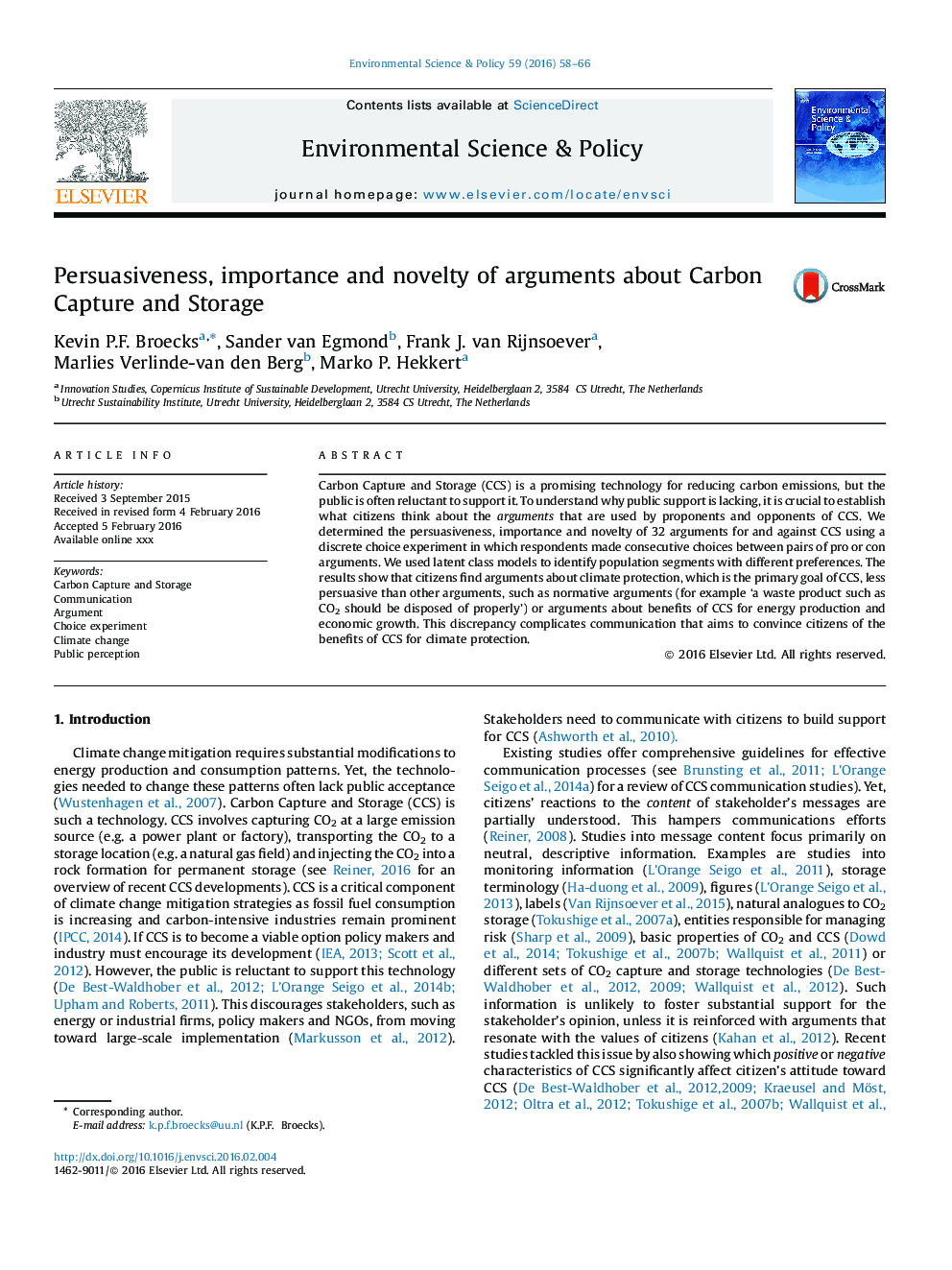| Article ID | Journal | Published Year | Pages | File Type |
|---|---|---|---|---|
| 7466978 | Environmental Science & Policy | 2016 | 9 Pages |
Abstract
Carbon Capture and Storage (CCS) is a promising technology for reducing carbon emissions, but the public is often reluctant to support it. To understand why public support is lacking, it is crucial to establish what citizens think about the arguments that are used by proponents and opponents of CCS. We determined the persuasiveness, importance and novelty of 32 arguments for and against CCS using a discrete choice experiment in which respondents made consecutive choices between pairs of pro or con arguments. We used latent class models to identify population segments with different preferences. The results show that citizens find arguments about climate protection, which is the primary goal of CCS, less persuasive than other arguments, such as normative arguments (for example 'a waste product such as CO2 should be disposed of properly') or arguments about benefits of CCS for energy production and economic growth. This discrepancy complicates communication that aims to convince citizens of the benefits of CCS for climate protection.
Keywords
Related Topics
Physical Sciences and Engineering
Energy
Renewable Energy, Sustainability and the Environment
Authors
Kevin P.F. Broecks, Sander van Egmond, Frank J. van Rijnsoever, Marlies Verlinde-van den Berg, Marko P. Hekkert,
